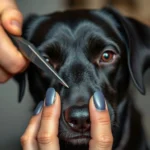
Introduction
Caring for a dog involves more than just feeding and walking; it encompasses understanding their health needs. Basset Hounds are a beloved breed known for their distinctive long ears and droopy eyes, but they come with a unique set of health challenges. Understanding the Basset Hound health problems is crucial for any owner to ensure a long and healthy life for their furry companion.
Understanding Basset Hound Anatomy and Physiology
Unique Physical Traits
The Basset Hound is characterized by its low stature, long ears, and loose skin. This unique anatomy predisposes them to certain health issues. Their short legs and elongated body structure can lead to problems with mobility, especially if they are overweight. The long ears, while adorable, can also trap moisture and debris, making them susceptible to infections.
Common Traits and Temperament
Basset Hounds are known for their gentle and laid-back temperament. They are affectionate and loyal companions, but their carefree nature can sometimes lead to challenges in health care practices. Owners must be vigilant about diet and exercise, as their relaxed demeanor may lead them to be less active than needed.
Common Health Problems in Basset Hounds
Hip Dysplasia
Hip dysplasia is a genetic condition affecting the hip joint’s formation. In Basset Hounds, this condition can lead to arthritis and joint pain over time. Symptoms often include difficulty rising, limping, or reluctance to exercise.
Diagnosis typically involves X-rays taken by a veterinarian. Treatment options range from weight management and physical therapy to surgical interventions in severe cases. Preventive measures include ensuring that puppies are not over-exercised or fed excessive calories during their growth phase.
Ear Infections
The Basset Hound’s long ears are a double-edged sword. While they enhance the breed’s character, they also create an environment conducive to ear infections. Moisture retention and the shape of the ear canal can trap wax and debris.
Signs of ear infections include scratching at the ears, shaking the head, and unpleasant odors. Regular cleaning of the ears with vet-recommended solutions can help prevent infections. If an infection occurs, treatment usually involves medicated ear drops prescribed by a veterinarian.
Obesity
Obesity is a significant concern among Basset Hounds. Their love for food, combined with a propensity for a sedentary lifestyle, can lead to excessive weight gain. Statistics indicate that over 40% of dogs in the U.S. are considered obese, with Basset Hounds being particularly prone.
Health risks associated with obesity include diabetes, joint problems, and a shorter lifespan. Owners should implement weight management strategies such as portion control, regular exercise, and consulting with a veterinarian about appropriate diets for their dogs.
Intervertebral Disc Disease (IVDD)
Intervertebral Disc Disease is a condition where the discs between the vertebrae become damaged or degenerate. This is particularly concerning for Basset Hounds due to their long spine. Risk factors include genetic predisposition and obesity.
Symptoms of IVDD can manifest as back pain, reluctance to move, and even paralysis in severe cases. Treatment options range from conservative management, including rest and medication, to surgical intervention for more serious issues.
Eye Conditions
Basset Hounds are also prone to various eye conditions, such as Cherry Eye and Glaucoma. Cherry Eye occurs when a tear gland prolapses and becomes visible. Symptoms include redness and swelling.
Glaucoma, characterized by increased pressure within the eye, can lead to vision loss if not treated promptly. Regular eye examinations are essential for early detection. Treatment for eye conditions may involve surgical options or medicated eye drops.
Skin Problems
Skin issues in Basset Hounds can range from allergies to dermatitis. Their loose skin can trap moisture and irritants, leading to rashes and infections. Common allergens include pollen, food ingredients, and flea bites.
Signs of skin problems include excessive scratching, licking, and hair loss. Treatment often involves cleaning the affected areas, medicated shampoos, and possibly dietary changes to eliminate allergens. Regular grooming and skin checks can help in early detection and prevention.
Regular Health Check-Ups and Veterinary Care
Importance of Regular Veterinary Visits
Routine veterinary visits are crucial for maintaining the health of your Basset Hound. Annual check-ups are generally recommended, with more frequent visits for older dogs or those with pre-existing conditions. During these visits, veterinarians will conduct thorough examinations and discuss vaccination schedules.
Vaccinations and Preventive Care
Vaccinations play a vital role in protecting Basset Hounds from common diseases. Core vaccines include rabies, distemper, and parvovirus. Additionally, preventive care should include flea, tick, and heartworm prevention, which is critical given the breed’s susceptibility to certain parasites.
Dental Health
Dental care is often overlooked but is essential for the overall health of Basset Hounds. Poor dental hygiene can lead to periodontal disease, which may affect not just oral health but overall well-being. Regular brushing, dental treats, and professional cleanings are recommended to maintain healthy teeth and gums.
Nutrition and Diet for a Healthy Basset Hound
Understanding Nutritional Needs
Proper nutrition is the cornerstone of health for Basset Hounds. A balanced diet should include high-quality protein, healthy fats, and essential vitamins and minerals. Dog foods specifically formulated for their breed size and age can provide the necessary nutrients.
Special Dietary Considerations
Food allergies and intolerances are common in Basset Hounds. Symptoms may include gastrointestinal upset or skin irritations. It’s essential to monitor your dog’s food closely and consult a veterinarian if any adverse reactions occur. Weight management is also critical; consider low-calorie options for overweight dogs.
Treats and Supplements
Healthy treats can be a great way to supplement your dog’s diet, but moderation is key. Consider options like carrots, green beans, or commercial treats specifically designed for dogs. Supplements such as Omega-3 fatty acids can promote joint health, which is particularly beneficial for Basset Hounds prone to joint issues.
Exercise and Lifestyle Considerations
Importance of Regular Exercise
Despite their laid-back nature, Basset Hounds require regular exercise to maintain a healthy weight and prevent obesity. Daily walks and playtime are essential to keep them physically active. Aim for at least 30 minutes of moderate exercise each day.
Mental Stimulation
Mental engagement is just as important as physical activity for Basset Hounds. Activities such as puzzle toys, scent games, and training sessions can keep their minds sharp. Socialization with other dogs and people is also crucial for their development and happiness, so consider dog parks or playdates.
Conclusion
Proactive health care for Basset Hounds is essential for ensuring they live long, healthy lives. By understanding the common Basset Hound health problems, regular veterinary care, proper nutrition, and exercise, owners can provide the best possible care for their furry friends. Regular monitoring of health concerns and timely consultations with veterinarians will help in managing and mitigating potential issues.
FAQs
Common Questions About Basset Hound Health
What are the most common health issues in Basset Hounds?
The most common health issues in Basset Hounds include hip dysplasia, ear infections, obesity, intervertebral disc disease, eye conditions, and skin problems.
How often should I take my Basset Hound to the vet?
For healthy adult Basset Hounds, annual veterinary check-ups are recommended. Older dogs or those with health issues may require more frequent visits.
What should I feed my Basset Hound?
A high-quality, balanced diet formulated for their breed and age is recommended. Monitor their weight and consult with a veterinarian for specific dietary needs.
How can I prevent ear infections in my Basset Hound?
Regular cleaning of the ears with vet-approved solutions and keeping the ears dry can help prevent infections. Monitor for signs like scratching or odor.
Are Basset Hounds prone to obesity?
Yes, Basset Hounds are prone to obesity due to their love for food and more sedentary behavior. Regular exercise and portion control are vital to managing their weight.









